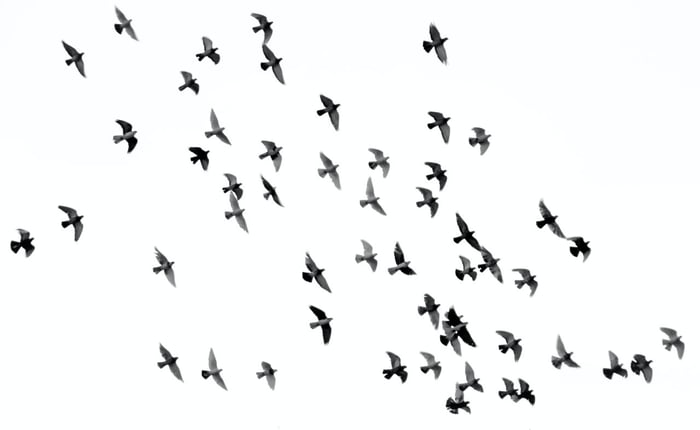
From the letters of Emily Dickinson, to anti-slavery correspondences from the abolitionist movement in the United States, to the love letters of Oscar Wilde, letter writing has—around the world and across time—offered interpersonal connection and a peek into history.
In this time of social distancing and societal revolution, there is salve to be found in the slower, more methodical practice of writing letters to a friend or family member, politician or parliamentarian. Below, Guest Judge Brother Richard Hendrick offers insight into the practice, utility, and contemplative art of letter writing, drawing from his own inspirations of poetry and mindfulness to offer advice as you prepare your entries.
We look forward to your correspondence.
Your poem “Lockdown,” about the COVID-19 pandemic, has struck a chord with readers around the world and gone “viral” on social media. What inspired you to write the verse?
At a time when the news coverage of the then growing pandemic was overwhelmingly negative, I had the experience of hearing, in one day, the three beautiful incidents mentioned in the poem: the birds in Wuhan resurfacing after such a long time; the people of Assisi in Italy singing across the squares to each other; and the young woman choosing to serve the elderly in her neighbourhood.
After meditating on these as seeds of goodness arising from the negative experience of COVID-19, the poem was born as a practice of gratitude to God as the Love that always encompasses us even in dark times.
Did you expect it to reach such a wide audience?
No! Absolutely not. My poems and meditations have a good audience, but usually that is limited to the direct followers of my various social media accounts. I published the poem on FB and Instagram and went to bed. Nothing could have prepared me for the reaction that met me the following morning! It continues to this day, though thankfully the hundreds of emails are slowing down.
What inspired your poetic practice? Have you always considered yourself a writer?
Since I was a child, I’ve always loved poetry. My own Poetic practice, as with all my writing, is born from my contemplative prayer practice as a Capuchin Franciscan friar, (a type of Monk). We are called to a reflective way of life that I find is helped by the reading and practice of poetry. My poems began as responses to moments of prayer and awareness, often inspired by the natural world around me. As for being a writer, I think I would consider myself a Friar who writes, rather than a writer.
You teach mindfulness and meditation to young people. In what ways do mindfulness and letter-writing complement one another?
Mindfulness means being consciously in the present moment, choosing to be aware of what is going on around us and within us. In that sense, letter writing can be seen as a contemplative art. It slows us down and makes us consider what we are about to say. We can be aware of the texture of the paper, the flow of the ink, the emotions and thoughts as they arise and are worked with and put down on paper. Even our handwriting can be a meditative discipline. Just think of the ancient art of calligraphy and how it was often used by spiritual practitioners from many different religious traditions.

Are there contemplative practices you might recommend to young writers around the world as they seek to find solace in these uncertain times?
To write is to reflect. Something happens outside me, a thought then arises in response to that stimulus and that thought may become a written word, or story or poem, or anything. So, it can be good to practice deep noticing as a writer. To really look at what is going on around us and within us. To really listen to all that is happening within us, but without negativity.
To help with this, we could use the awareness of our own breath to slow us down. We can be compassionate about our writing… it can always be improved, but we should not judge it or compare it to others’. If it is an authentic thought of ours, then it is beautiful and powerful in its essence. Try writing in different spaces and observe the inner difference. Is it better for you to write with a pen, on a keyboard, outside or inside, with noise or with silence? A moment of still, mindful reflection on all this will help you enormously.
What is the most meaningful letter you’ve ever received? What was significant about the content, writing, or context of this particular piece of correspondence?
When I was 11, I wrote a fan letter to a famous author named Gerald Durrell who must have received sacks of mail every day. I never expected an answer. So you can imagine I was absolutely elated to receive a reply from him! In it, he answered my questions, was very funny, and took the time to be very kind about my letter. I have never forgotten this, and it has inspired me to always try and take time to be kind with strangers, to listen to people, (especially children), and to answer their questions as best I can. It also began a habit of writing to authors I like over the years. Many of them have replied, and we have corresponded a little, and one or two I have become friends with… all because of Gerald Durrell taking time to write back.
What are you looking for in a winning Letter Writing entry?
I think I’m looking for someone who doesn’t just know the form of letter writing but someone who uses the form to communicate from their heart with honesty and even humour.





